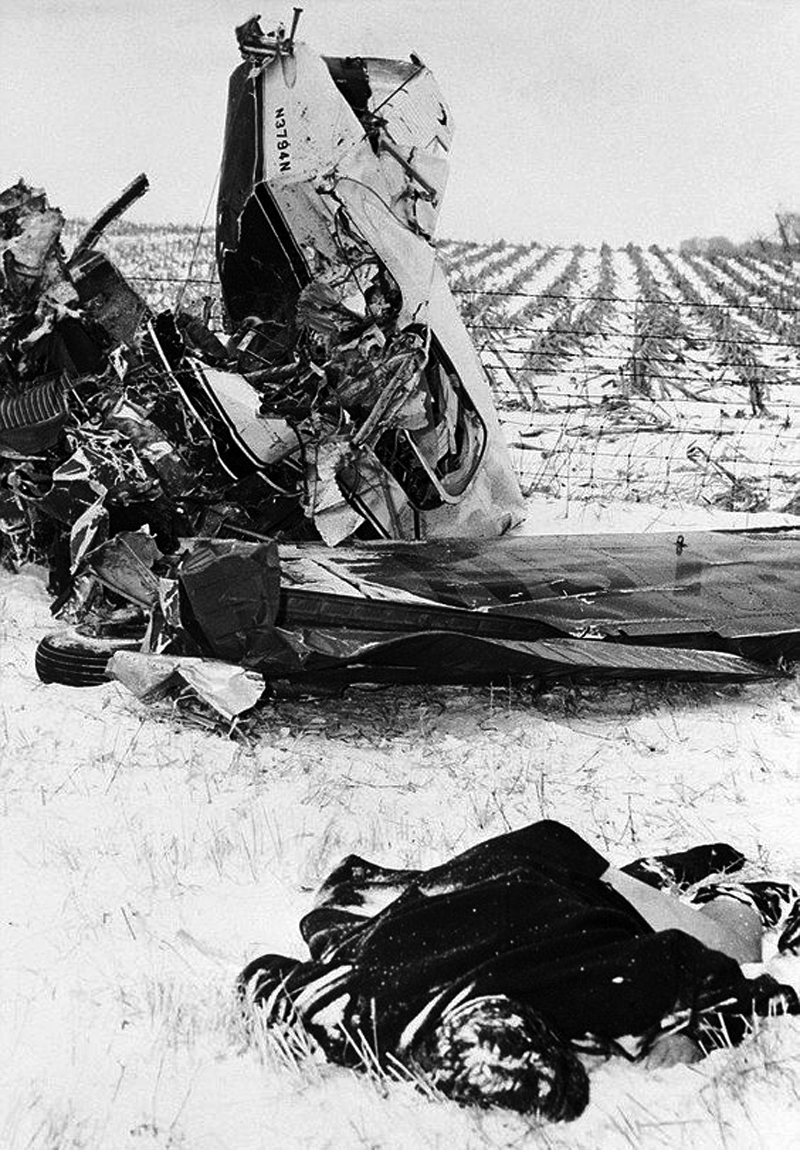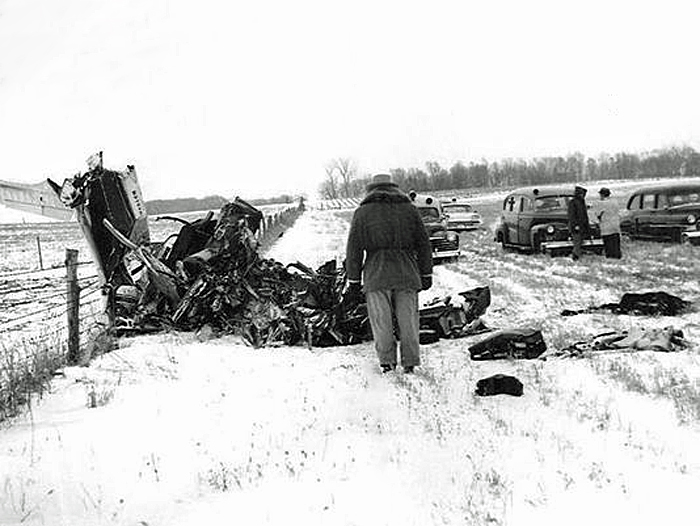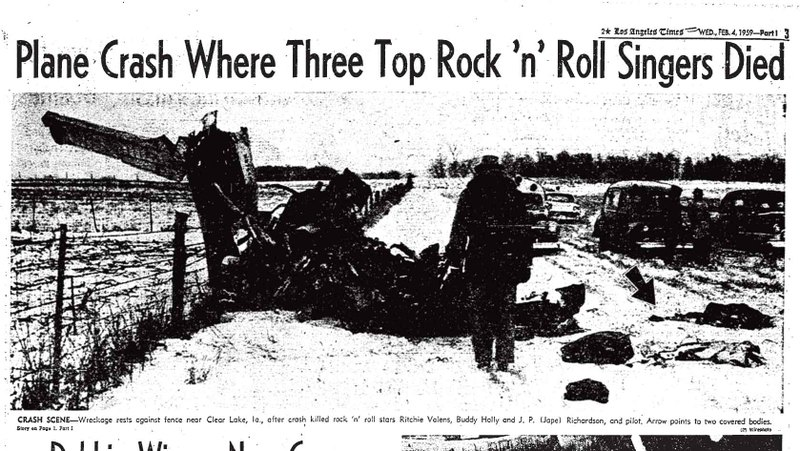 From the MCRFB NEWS archive: 1959
From the MCRFB NEWS archive: 1959
Condolences Extended To Families Of 3 Rock ‘n’ Roll Stars Killed In Plane Crash
O N T H E B E A T
b y R e n G r e v a t t | B i l l b o a r d F e b r u a r y 9 , 1 9 5 9
T H I S C O L U M N extends its condolences to the families and friends of Buddy Holly, J. P. (Big Bopper) Richardson and Ritchie Valens, whose deaths occurred in a tragic plane crash earlier this week. All three left a distinct mark on the pop record scene and all three will be sorely missed by not only those who were close to them, but by many, many young record buyers who felt close to them in another way, as well.
Valens, a 17 year-old Californian, was experiencing his first big surge of popularity with his Del-Fi disk of “Donna,” which at the time of his death was the number three record in the nation. Earlier, Valens had scored with “Come On, Let’s Go.” Richardson, a Texas disc jockey with some eight years’ radio experience behind him, was a cleffer of some distinction and recently had made it big with “Chantilly Lace,” on Mercury Records. The hit disk, oddly enough, was the flip side of the “Purple People Eater Meets The Witch Doctor,” the original plug-side of the record.
Holly had been on the scene longest of all. A discovery of music man Norman Petty of Clovis, New Mexico, Holly had much to do with popularizing the so-called “Tex-Mex” rockabilly sound, with a number of smash hit records like “That’ll Be The Day,” “Peggy Sue,” “Oh Boy,” “Maybe Baby,” “Rave On” and “Early In The Morning.” His latest coupling, his first effort for a with a big string backing, was “It’s Raining In My Heart,” and in a way the ironical title, “It Really Doesn’t Matter Anymore.” But for many, it does matter, and Holly, Valens and Richardson will be not be forgotten. In fact, Coral Records is rushing out an album of Holly’s biggest hits, under the title, “The Buddy Holly Story.” END
___
(Information and news source: Billboard; February 9, 1959)

A MCRFB Note: This column was Billboard’s first immediate reference on the deaths of Holly, Valens and Richardson. This column initially was published six days after the tragedy.
For more on February 3, 1959 on the web: Go to the Des Moines Register online and see that paper’s exclusive tribute to Holly, Valens and Richardson, observing “50 Winters Ago” from 2009. You can literally spend hours here — it is loaded with a time-line, interviews, videos, photographs, documents and other special features commemorating 50 years since the tragic 1959 event. And this from the Lubbock-Avalanche Journal online (2009), “Iowans Remember Buddy Holly Performance” (click on the BACK-NEXT button as you go). Especially read the very last eyewitness account . . . Last, see Scott Westerman’s splendid take on”American Pie Deciphered” (broadcast on XM-Sirius in 2010) here on Motor City Radio Flashbacks.
F E B R U A R Y 3 , 1 9 5 9 : T O D A Y I N M U S I C H I S T O R Y
___
1959: WITHIN MINUTES OF TAKEOFF FROM the Mason City, Iowa Airport, at around 1:00 AM CST, the chartered Beech-Craft Bonanza airplane No. N3794N containing Buddy Holly, Ritchie Valens, and J. P. Richardson (Big Bopper) crashes into the Iowa countryside, killing all three, in addition to pilot Roger Peterson. The plane, headed for the next “Winter Dance Party” tour stop in Fargo, North Dakota, had been chartered by Holly in order for the band members to travel in heated comfort and to arrive early for their next gig.
When he learns that band member Waylon Jennings, who would eventually become a country star in his own right, has decided to take the freezing bus instead, Holly jokes, “Well, I hope your old bus freezes up.” Jennings jokes back, “Well, I hope your plane crashes.” Another Holly band member, Tommy Allsup, flips Valens for the last available seat, losing the coin toss. Valens exclaims, “That’s the first time I’ve won anything in my life!”
Pilot Peterson, not having been informed of worsening weather conditions, decides to fly “on instruments,” meaning without visual confirmation of the horizon, which leads to the crash. The tragedy was later immortalized as “The Day The Music Died” by Don McLean in his famous song “American Pie.”
___
This Day In Pop Music History: February 3, 1959

![]()


Even though it has been 60 years, I still love their music and remember them as up and coming artists of my early teens. I still love their music and deeply reflect their loss. The talents that were lost are memorialized today in memories and as well as music.
The music today, the 21st. century, doesn’t not touch the hearts like these young men did.
I am saddened still and will never forget them as they were by of my life also.
Rest in Peace, Eternally.